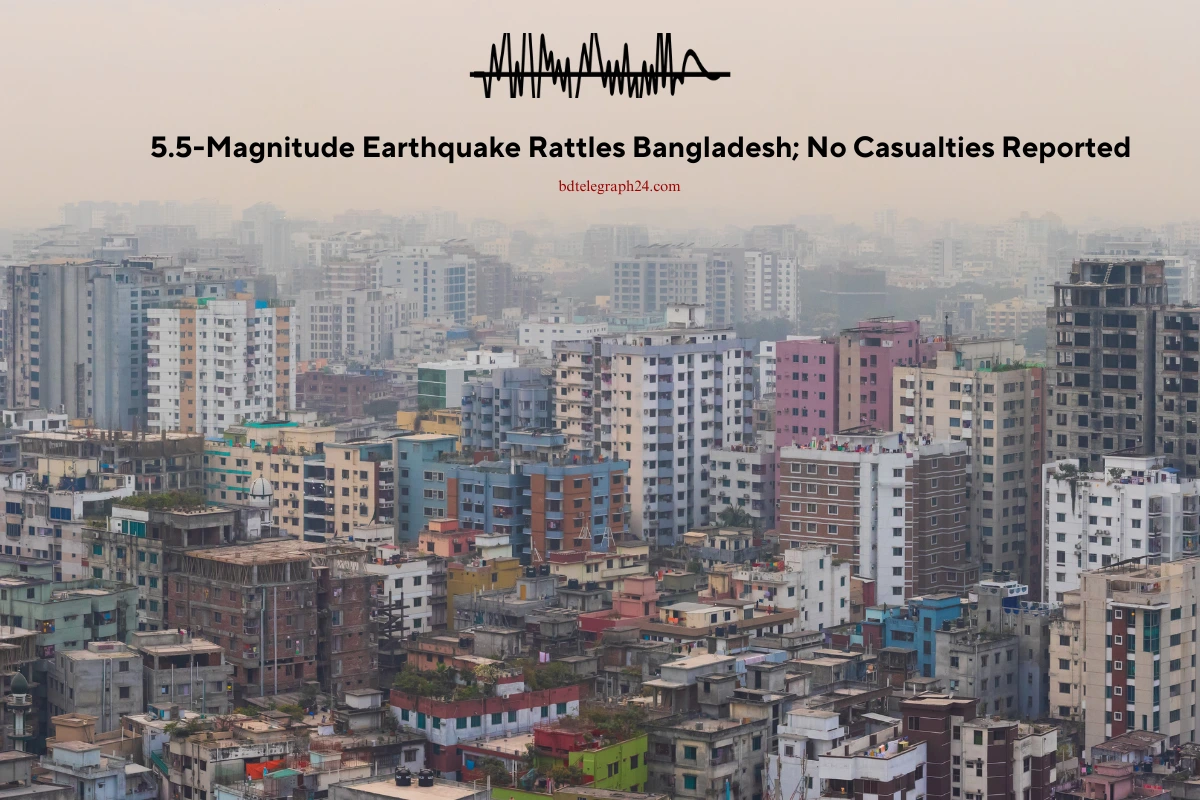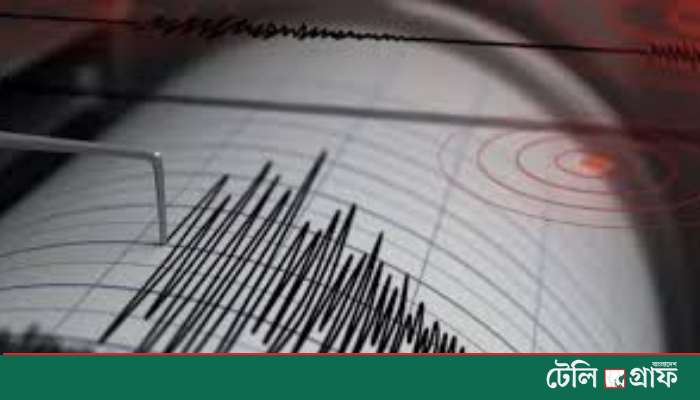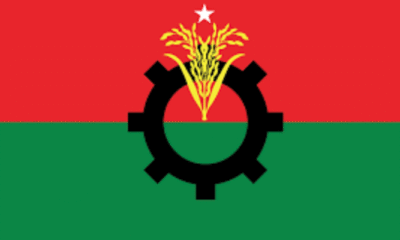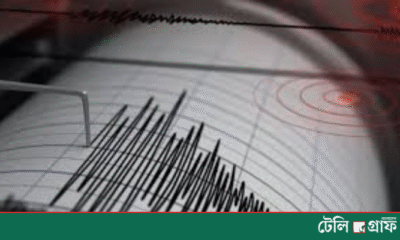Bangladesh
5.5-Magnitude Earthquake Rattles Bangladesh; No Casualties Reported

In a startling wake-up call on Saturday morning, a 5.5-magnitude earthquake struck various regions of Bangladesh, causing panic among residents and leading to a brief exodus to the streets in the capital city of Dhaka.
According to the United States Geological Survey (USGS), the earthquake originated at 9:35 am local time, with its epicenter located 8 kilometers east-north-west of Ramganj in Lakshmipur. The Bangladesh Meteorological Department (BMD) reported a slightly higher magnitude, measuring the tremor at 5.6 on the Richter scale, as confirmed by on-duty official Robiul Haque.
The effects of the earthquake were not confined to a specific region, as reports came in of tremors being felt in various parts of the country, including Rajshahi, Sylhet, Rangpur, Chuadanga, Noakhali, and Kushtia.
In the capital city, Dhaka, the seismic event prompted residents to evacuate buildings and gather on the streets, fearing the possibility of aftershocks. Eyewitnesses reported scenes of panic and confusion as people hurriedly left their homes and offices to seek open spaces.
As of now, no casualties have been reported, and authorities are working to assess the extent of the damage caused by the earthquake. Emergency response teams are on standby, ready to provide assistance if needed.
The occurrence of earthquakes is not uncommon in this region, given its location on the seismically active Ring of Fire. Bangladesh has experienced earthquakes in the past, and efforts are continually made to raise awareness about preparedness and safety measures.
Crime and Justice
Trishal Student Kills Friend with Axe, Surrenders Minutes Later

A 22-year-old student, Onik Mondol, surrendered to police shortly after allegedly killing his close friend, Muntasir Fahim, with an axe in Trishal, Mymensingh, on Thursday night. The incident occurred around 9 pm near the Nazrul Academy field, adjacent to the Trishal Police Station boundary.
The murder sparked shock among local residents, drawing crowds to the police station soon after. Fahim, also 22, was a resident of Chikna village and a student at a Malaysian university. He had returned to Bangladesh a month earlier and was scheduled to fly back in two days.
Onik, an honours student at a college in Tangail and a resident of Ward 4 in the municipality, turned himself in within thirty minutes, carrying the axe used in the attack. Trishal Police Station Officer-in-Charge Monsur Ahmed confirmed that the accused narrated the incident upon arrival.
According to police, Onik claimed he killed Fahim due to previous disputes, alleging Fahim had “caused him significant harm.” Authorities have launched an investigation to determine the actual motive behind the killing.
Fahim’s family stated that he left home in the evening, saying he would meet friends. About an hour later, they were informed of his death.
People and Culture
Two Mild Quakes in Two Days: Tremors Felt in Narsingdi and Sylhet

A mild earthquake was felt in Bangladesh on Thursday at 4:15:47 pm, with its epicentre located in Ghorashal of Narsingdi, according to the European Mediterranean Seismological Centre (EMSC). No immediate reports of damage or casualties were received.
A day earlier, at 3:30:49 am on Wednesday, another minor earthquake measuring 3.4 on the Richter scale was recorded in Sylhet. Officials from the Sylhet Meteorological Office said the tremor originated in Manipur, India, and went largely unnoticed due to its low intensity.
Meteorologist Shah Md Sajib Hossain said such mild tremors are common in the region and often do not require formal notifications.
Crime and Justice
Four Sentenced to 15 Days for Illegal Soil Excavation from Kapotaksha River

A mobile court has sentenced four individuals to 15 days of imprisonment for illegally excavating soil from the banks of the Kapotaksha River in Chowgacha upazila of Jashore. The operation was led by Assistant Commissioner (Land) and Executive Magistrate Engineer Tasmin Jahan on Thursday at Niyamatpur village in Patibila Union.
The convicts are Jewel Rana of Ichapur, Abu Bakkar of Porapara, Abu Bakkar Siddiqui of Ramkrishnapur, and Jewel Hossain of Andulia. They were punished under Section 15(1) of the Sand and Soil Management Act, 2010.
Authorities said the men were caught red-handed while removing soil following a tip-off. Three vehicles and an excavator used for soil extraction were seized and placed under the custody of local Union Parishad member Monirul Islam.
Local residents claim the group had been illegally cutting soil from the riverbank for a long time. Officials have instructed all concerned to refrain from such activities.
A day earlier, on Wednesday, Tasmin Jahan fined another individual—Azmir Rahman—Tk 80,000 for illegally removing soil from the Kapotaksha River in the Digholsingha area.
-

 International2 days ago
International2 days agoAssam Moves to Criminalise Polygamy, Proposes Up to 10 Years in Jail
-

 Politics2 days ago
Politics2 days agoBNP Unveils Week-Long ‘Plan to Rebuild the Nation’ Programme
-

 Politics2 days ago
Politics2 days agoCampaign Arch Torched in Faridpur-4 Ahead of National Elections
-

 People and Culture2 days ago
People and Culture2 days agoTwo Mild Quakes in Two Days: Tremors Felt in Narsingdi and Sylhet
-

 Crime and Justice2 days ago
Crime and Justice2 days agoFour Sentenced to 15 Days for Illegal Soil Excavation from Kapotaksha River
